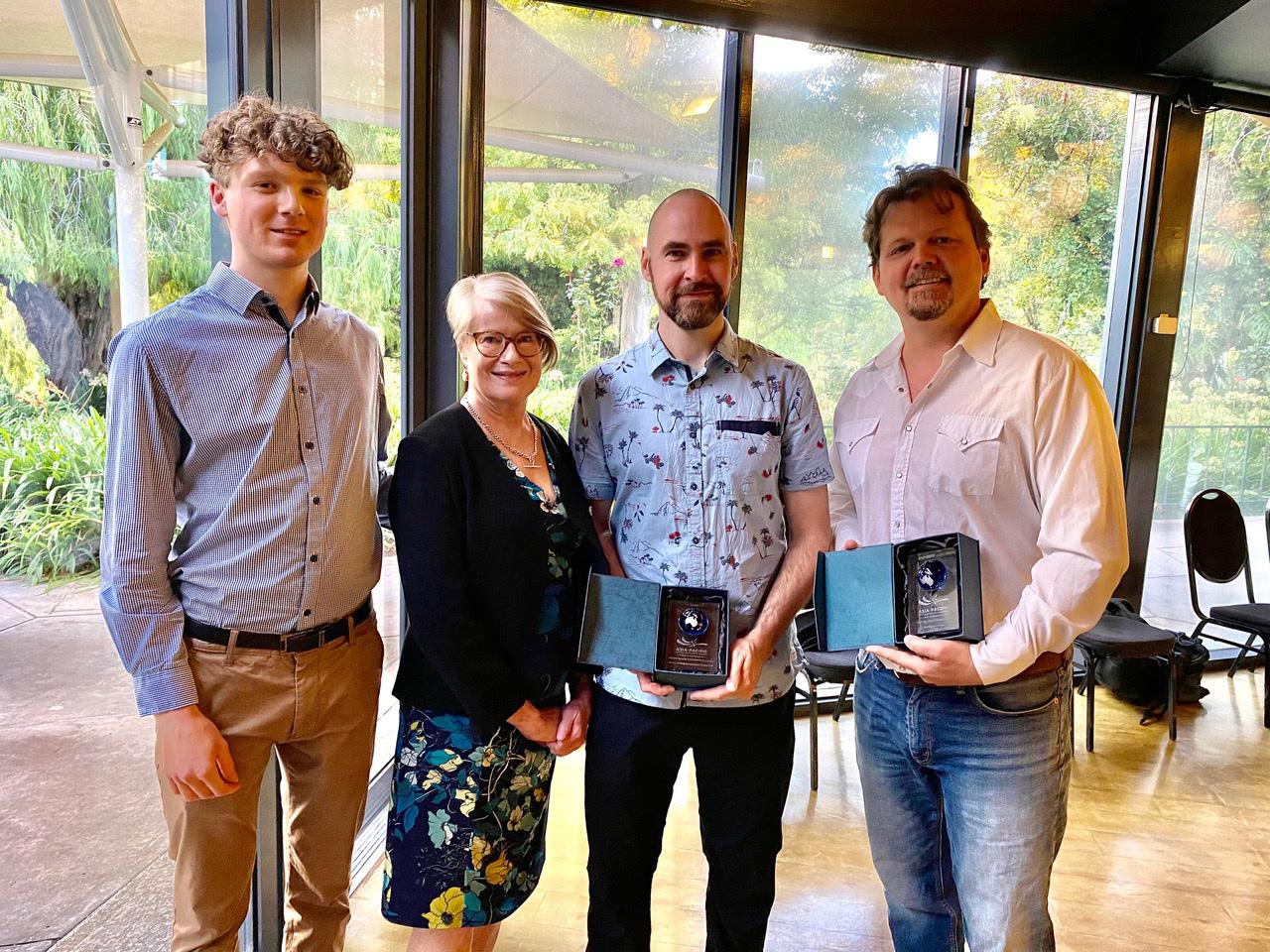Off the chart: Spatial scientists celebrate research awards
Innovative and collaborative research by two of University of Adelaide’s leading spatial scientists has resulted in top honours at the regional Asia-Pacific Spatial Excellence Awards (APSEA).
Researchers Ken Clarke and W. Boone Law from the Spatial Sciences Research Group in the School of Biological Sciences have received respective awards from the Surveying and Spatial Sciences Institute (SSSI).
Update: On March 31 following the publishing of this story, Boone was awarded the APSEA Oceanic-region Postgraduate Student Award.

Members of the Spatial Sciences Research Group with APSEA awards, from left, PhD candidate Angus Retallack, Professor Megan Lewis, Dr Ken Clarke, and Dr W. Boone Law.
Dr Clarke accepted ‘The Industry Award for Environment and Sustainability’ for his contribution to creating a comprehensive environmental monitoring solution for South Australia’s pastoral leases.
The Condition Assessment and Risk Management System (CARMS) was created through collaboration between the school, the University’s Australian Institute for Machine Learning and the Department of Primary Industries and Regions South Australia (PIRSA).
CARMS uses satellite remote sensing and geospatial data, Geographic Information Systems and advanced data analysis, to create annual reports on vegetation cover for all 323 pastoral leases, within the context of rainfall trends and vegetation cover over the past 20 years.
These reports are used by PIRSA staff to support land condition assessments and compliance decision-making, and to assist planning on-ground assessments.
Dr Law was awarded the ‘APSEA Postgraduate Student of the Year Award’ for South Australia. He completed his PhD in 2020 under the guidance of the University’s Professor Megan Lewis and Associate Professor Bertram Ostendorf, and Professor Peter Hiscock from the Australian Museum.
Dr Law’s PhD in spatial science and environmental remote sensing was acknowledged as having ‘fantastic engagement examples’ and ‘was an innovative thesis’. He used his spatial science knowledge and skills to make innovative and well-received academic contributions to Australian archaeology.
His doctoral research entitled Using Satellite Remote Sensing Technologies to Discriminate Patterns of Ancient Aboriginal Land Use in the Australian Arid Zone, is amongst the first in Australia to promote and utilise advanced aerial and satellite remote sensing technologies to better understand the Aboriginal archaeological record.
The SSSI is Australia’s peak body representing the interests of surveying and spatial science professionals. As regional awardees, both Dr Clarke and Dr Law are in the running for national Asia-Pacific Spatial Excellence Awards, which will be announced at the Locate21 Conference at the end of the month.
